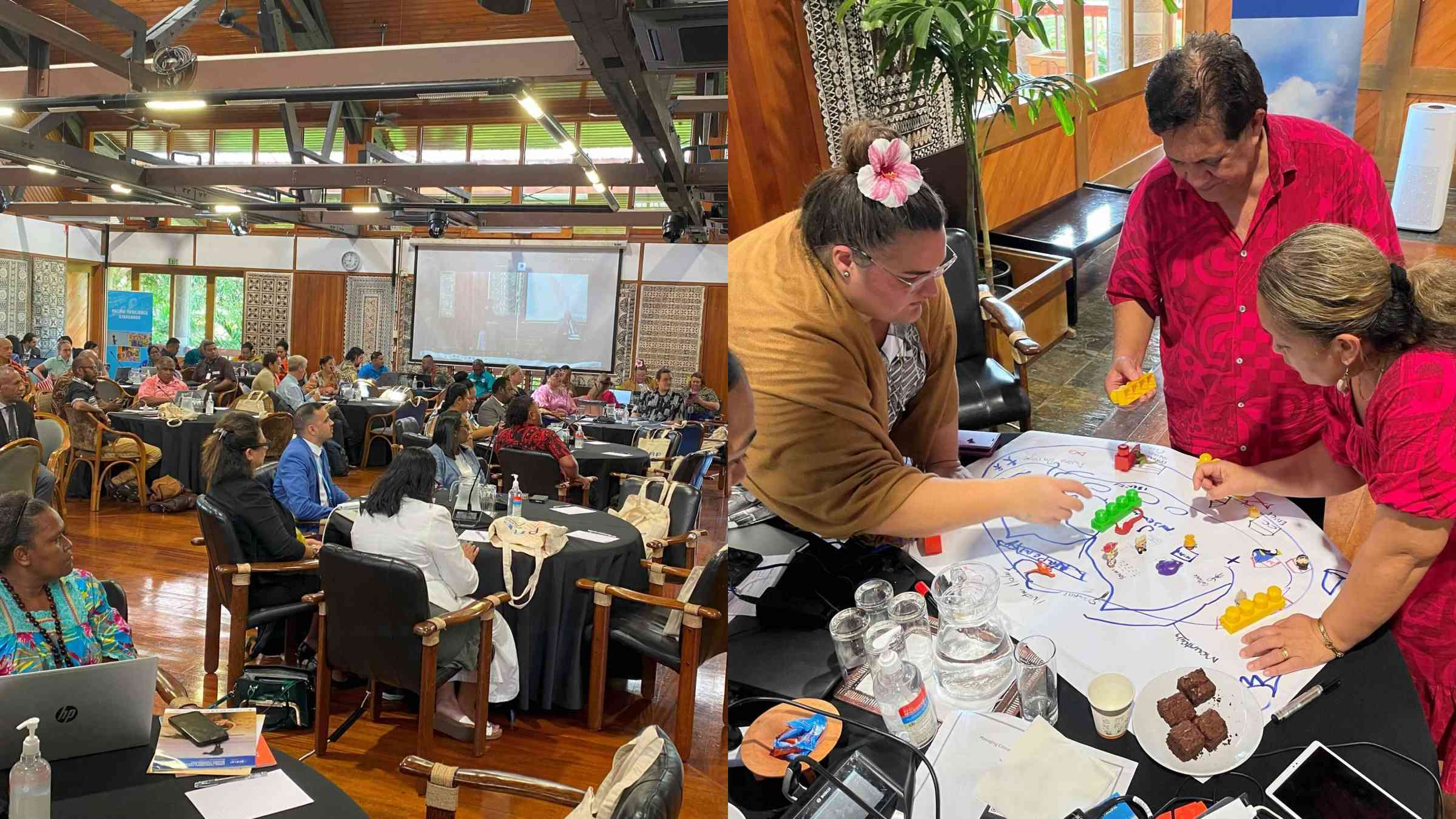Pacific surges forward on climate and disaster resilience

27 September 2024, Suva, The devastating impact of the climate emergency is most visible among the islands of the world, where the Pacific region remains at the forefront of disaster risk exposure. The region faces its devastating impacts through extreme and slow-onset events.
At the same time, the Pacific region has also demonstrated leadership in enhancing disaster and climate resilience and collective action. The region was a pioneer in integrated planning, seen through integrated plans for climate change adaptation and disaster risk reduction in several countries, and, at the regional level, through the Framework for Resilient Development in the Pacific 2017 - 2030 and more recently the 2050 Strategy for the Blue Pacific Continent. Two Pacific countries - Kiribati and Tonga - have submitted such integrated plans as their national adaptation plans (NAPs).
However, despite such positive advances, the region faces challenges in implementation.
This was the topic of discussion at the regional consultation on "Comprehensive Disaster and Climate Risk Management in the Pacific", organized as part of the "Pacific Resilience Week: Managing Climate and Disaster Risk for a Resilient Pacific", that concluded on 27 September 2024 in Suva, Fiji. The Pacific Resilience Week was hosted by the Pacific Islands Forum Secretariat (PIFS) in partnership with the Government of Fiji, the Council of Regional Organisations in the Pacific, and the United Nations.
The regional workshop saw the participation of around 60 officials from disaster risk management, environment, planning and finance ministries of 13 Pacific small island developing States. The Pacific Resilience Week was organized as a collaborative event and also featured a Consultation on the Implementation Plan for the Pacific Regional Framework on Climate Mobility, and the Pacific LDC-SIDS workshop on the Santiago network.
Opening the event, Hon. Biman Prasad, the Deputy Prime Minister of Fiji said: "The outcomes of the first Global Stocktake of the Paris Agreement underscored the need for a more coherent approach, as did the Midterm Review of the Sendai Framework for Disaster Risk Reduction. But we cannot afford to be incoherent or inefficient in our efforts. Hence the need to convene the three interlinked workshops and sessions on these crucial issues."
Participating government officials reviewed and shared their experiences in implementing plans and outlined challenges in integrated implementation across domains and sectors. Limited availability of and access to data, especially data on slow-onset events and non-economic losses, overlapping institutional mandates, and fragmented financing were identified as some of the key challenges.
"Global apathy and inaction remains a real challenge for decisive and transformative action on climate change. Nonetheless, we must continue to work together as the Blue Pacific to ensure the global mechanisms and support that exist are appropriately targeted and contextualized to our needs", said Mr. Esala Nayasi, Acting Secretary General of PIFS.
Participants made a call for greater coherence in the support available and accessible to countries, particularly in the provision of finance for building resilience. This is against the ongoing evolution of the finance landscape at the regional and global levels.
Participants identified some key next steps for action to strengthen a comprehensive risk management approach to integrated planning and implementation. Strengthening the overall data ecosystem, including better monitoring of losses and data sharing, stronger policy and legal frameworks and streamlining financing flows for their implementation were some of the key priorities identified. Countries in the process of developing or revising national adaptation plans were also encouraged to consider a comprehensive risk management approach.
Thanking the participants, Animesh Kumar, Head of the UNDRR Office in Bonn, said: "The Pacific leadership on coherent planning has been widely acclaimed globally. With the emerging landscape on loss and damage, the Pacific region has a unique opportunity to advance this further towards stronger implementation for long-term resilience."
Among other segments of the Pacific Resilience Week, participants discussed similar challenges and action on climate mobility. The LDC and SIDS workshop on Santiago network further identified key areas of capacity gaps and needs in the region, and oriented participants in accessing it as a global facility for technical assistance to avert, minimize and address loss and damage.